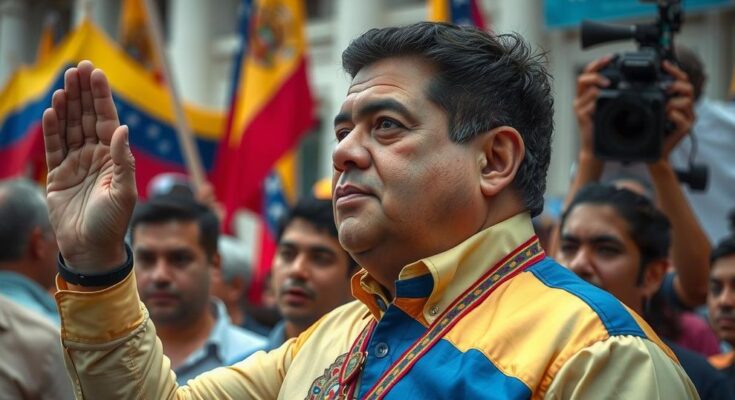Nicolas Maduro was sworn in for a new term as Venezuelan President amid protests and claims of electoral fraud. He asserted his legitimacy during a guarded ceremony, framing his tenure as a triumph against external adversaries, while simultaneously facing renewed sanctions from international governments.
On Friday, Venezuelan President Nicolas Maduro was sworn in for a new term, amidst protests and widespread accusations of electoral fraud. He delivered a spirited speech at the legislative palace, which was heavily fortified by security personnel, underscoring his reliance on military support since the controversial elections last summer. Demonstrations sparked by dissatisfaction with his rule filled the streets, yet Maduro emphasized his perceived victory over foreign adversaries, particularly the United States, claiming his inauguration signified a triumph for Venezuelan sovereignty.
The political climate in Venezuela has been increasingly turbulent, characterized by economic instability, social unrest, and allegations of electoral corruption directed at President Maduro. His re-election in the last poll was met with widespread skepticism from both domestic opposition and international observers, leading to sanctions from several nations, including the United States. Maduro’s grip on power heavily relies on military support, exacerbating the crisis of governance and public trust in democratic institutions.
President Maduro’s recent swearing-in ceremony epitomizes the ongoing political strife in Venezuela, coming at a time of intensified dissent and international condemnation. Despite the outcries against his legitimacy, Maduro continues to project confidence, framing his presidency as a safeguard for Venezuelan nationalism against foreign intervention. The future of his administration remains uncertain, especially given the backdrop of persistent economic challenges and widespread discontent among the populace.
Original Source: www.scmp.com




